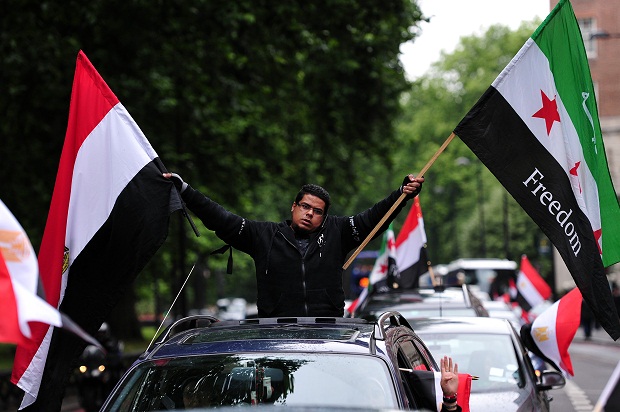The findings of the UK government’s review into the Muslim Brotherhood have finally been published. Commissioned by the Prime Minister in April 2014, the full report will not be released. Although the review finds that the Muslim Brotherhood does not meet the threshold of violence which would see it proscribed in the UK, it described members of the Muslim Brotherhood as possible extremists. As such the government has listed a set of renewed actions, including visa bans, on individuals associated with the group and promises to keep the group’s activities under review in order to consider proscription at a future date.
The key passage from the Prime Minister’s announcement this morning is this:
‘Muslim Brotherhood–associated and influenced groups in the UK have at times had a significant influence on national organisations which have claimed to represent Muslim communities (and on that basis have had a dialogue with Government), charities and some mosques. But they have also sometimes characterised the UK as fundamentally hostile to Muslim faith and identity; and expressed support for terrorist attacks conducted by Hamas. ‘Aspects of the Muslim Brotherhood’s ideology and activities therefore run counter to British values of democracy, the rule of law, individual liberty, equality and the mutual respect and tolerance of different faiths and beliefs. The Muslim Brotherhood is not the only movement that promotes values which appear intolerant of equality and freedom of faith and belief. Nor is it the only movement or group dedicated in theory to revolutionising societies and changing existing ways of life. But I have made clear this government’s determination to reject intolerance, and to counter not just violent Islamist extremism, but also to tackle those who create the conditions for it to flourish. The main findings of the Review support the conclusion that membership of, association with, or influence by the Muslim Brotherhood should be considered as a possible indicator of extremism.’
The section on the Muslim Brotherhood’s activities in the UK (authored by Charles Farr) are especially noteworthy. These include the fact that the MB established its first representation in the UK fifty years ago, but that crucially:
‘In the 1990s the Muslim Brotherhood and their associates established public facing and apparently national organisations in the UK to promote their views. None were openly identified with the Muslim Brotherhood and membership of the Muslim Brotherhood remained (and still remains) a secret. But for some years the Muslim Brotherhood shaped the new Islamic Society of Britain (ISB), dominated the Muslim Association of Britain (MAB) and played an important role in establishing and then running the Muslim Council of Britain (MCB). MAB became politically active, notably in connection with Palestine and Iraq, and promoted candidates in national and local elections. The MCB sought and obtained a dialogue with Government.’
The findings go on to list a set of organisations – including charities – which are associated with the Brotherhood and notes that among these:
‘MAB (like the MCB) have consistently opposed programmes by successive Governments to prevent terrorism.’
It concludes that:
‘Aspects of Muslim Brotherhood ideology and tactics, in this country and overseas, are contrary to our values and have been contrary to our national interests and our national security.’
The fact that these findings could be published at all constitutes a small victory for government. And doubtless there will be those who will hope this matter can now be shelved or at least made to go away for a time. In fact the release of these findings only starts the debate over what to do about the Muslim Brotherhood’s presence in the UK.
For instance, never mind preventing more Brotherhood emissaries travelling to the UK, how can individuals who have come to this country to promote the Brotherhood remain here now they are now known to be working for an entity with some members who have been officially labelled as possibly ‘extremist’ by the UK government?
Furthermore, how can groups associated with the Muslim Brotherhood – several named in the report, some of which are closely affiliated with the designated terrorist group (and Brotherhood off-shoot) Hamas – retain charitable status while being designated as possibly ‘extremist’ by the UK government? What capabilities will be given to the Charity Commission and then the other relevant authorities to investigate and pursue those entities which have clearly been using such a status to further the aims of an entity whose members have now been labelled possibly ‘extreme’? What about those individuals from the group and its affiliates who teach at universities or work in other public bodies in the UK? What about those university departments and others who have accepted money from entities that are associated with this organisation? How can such activity possibly continue after the findings of this report, and what action will be taken retrospectively to pursue those who have engaged in such actions?
The release of these findings is a small triumph. But now is the time to push the advantage against a group with some members who have now been shown to have been working inside Britain against the interests of Britain. Commissioning and publishing these findings was a demonstration of initiative. Following up on them will be a test of resolve.







Comments